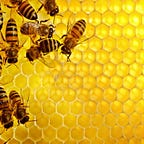Fires in Oregon and Yarnell, Arizona: Motivation for Basic Wild Fire Safety
Massive wild fires are currently burning near Yarnell, Arizona, and Akawana, Oregon. These fires have already burned thousands of acres, threatened lives, and forced hundreds of evacuations. The location of the Arizona fire, in particular, provides a poignant reminder of the tragic consequences that can result from forest fires, as Yarnell, Arizona is the site where 19 City of Prescott firefighters made the supreme sacrifice while working to protect residents from a similar wild fire just three years ago.
Lightning is believed to have ignited the Oregon fire, while the exact cause of the Arizona fire is currently unknown. Both regions are experiencing very dry conditions, however, creating conditions that facilitated fire growth. Fire spread in Oregon has been especially rapid due to the high winds.
Given the terrible losses caused by these wild fires, it is essential that we all do our part to minimize the likelihood of these fires occurring, and take steps to limit their spread and destruction if they do occur. An excellent resource for how to prevent forest and wild fires can be found through the Smokey the Bear website.
Smokey the Bear recommends the following for Camping Safety:
- Do not build a fire in hazardously dry conditions
- Do not build a fire within 15 feet of shrubs, trees, or tent walls
- Never leave a campfire unattended
- To extinguish a fire, pour water on it until all hissing stops, and all embers are extinguished. Stir wood with a shovel to uncover remaining embers
Smoke the Bear also offers tips for residents to increase safety in and around the home. The wildland-urban interface describes the area of transition from developed communities to wildland conditions. Neglect for these transition areas can permit dangerous, fire-breeding conditions that can create giant conflagrations that can threaten or destroy entire communities. Smokey’s tips for homeowners in the wildland-urban interface are as follows:
- Used charcoal from barbecues, or wood ash from fireplaces or wood burning stoves can very easily start wild fires when disposed of improperly. Always ensure that charcoal or wood ash is fully extinguished and cold by drowning and stirring in water before discarding outdoors.
- Improperly maintained power equipment such as lawn mowers can produce sparks that can initiate a brush fire on extremely dry days. Ensure all equipment is properly maintained, and avoid using it on excessively dry days.
- Maintain a minimum 30' fire-resistant zone between your home and combustible brush or trees
- Refrain from smoking within 3' of brush or other combustible materials, as even ashes from cigarettes may start a wild fire
Wild fires pose a significant threat to homeland security, endangering lives and threatening entire communities. Additionally, the massive resources required to contain and extinguish these fires act as a significant drain on first responder resources, diminishing the ability of affected communities to respond to other emergencies. For these reasons it is important that we all do our part to limit or prevent wild fires. In addition to following recommended safety guidelines ourselves, we should also help our neighbors follow these guidelines as well by sharing these tips, so that our communities will be more resilient to the threat of fire.
